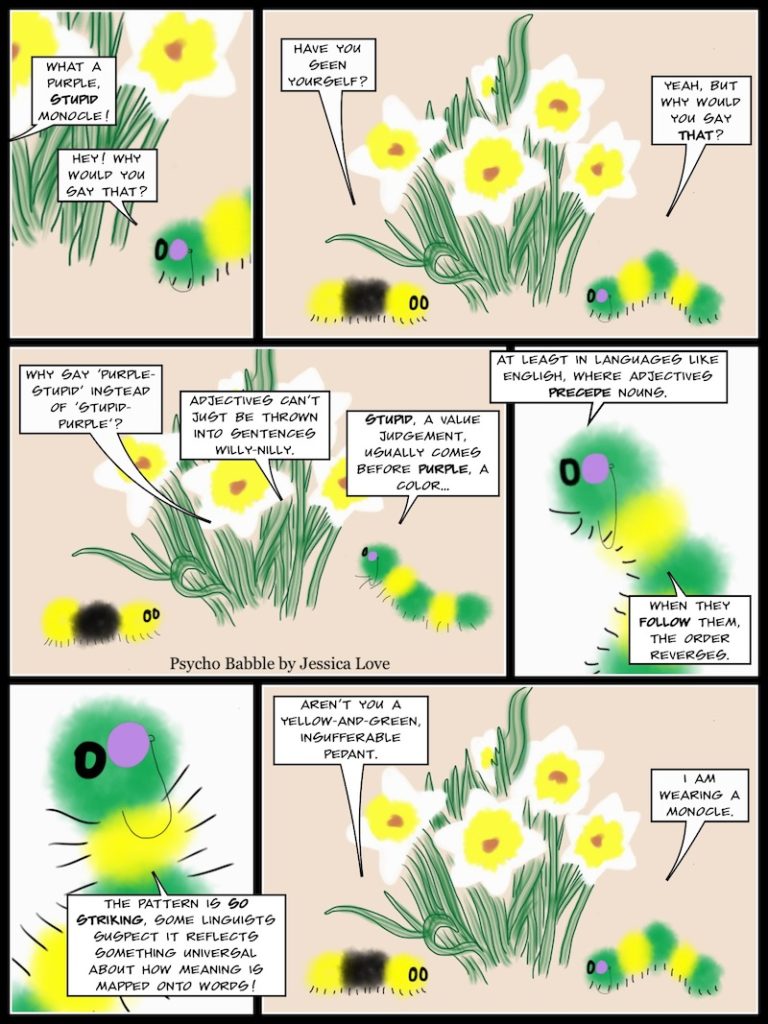Don’t Mock the Monocle (A Webcomic)
On our unspoken preferences for ordering adjectives

Most of us have strong intuitions about how adjectives should be strung together. More concrete, intrinsic descriptors—purple, wooden—should appear close to the noun, with more subjective, relative descriptors—stupid, nice—appearing further away. Size descriptors such as big—more situation-specific than purple, less so than stupid—ought to fall somewhere in between.
What’s fun about these preferences (other than their curious near-universality across languages) is that they tend to be “squishier” than other syntactic rules. We can all think of exceptions that sound perfectly okay to our ears. And we can purposefully break the preferred order to create a “strange-but-not-estranging” effect. Consider, for instance, the slightly unsettling title of Raymond Carver’s short story “A Small, Good Thing.”

